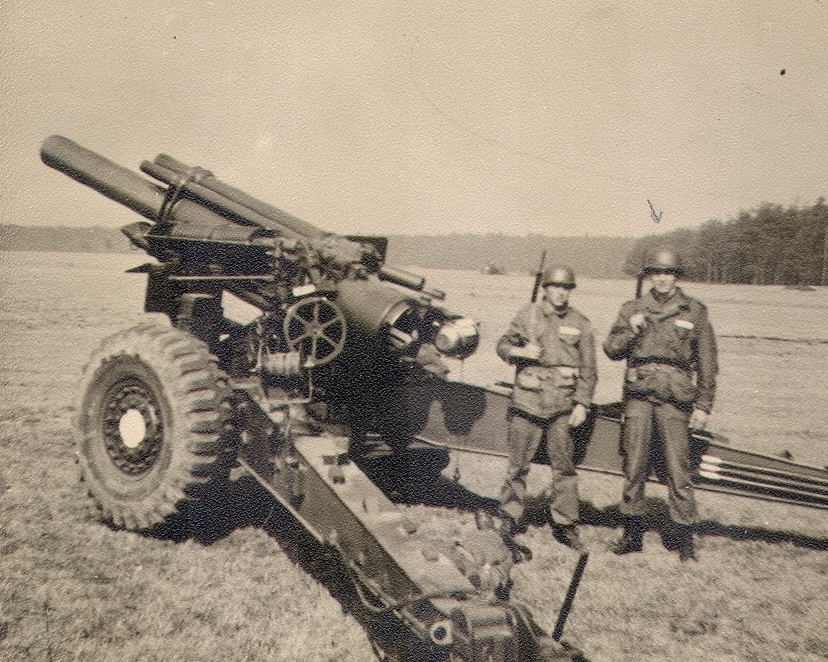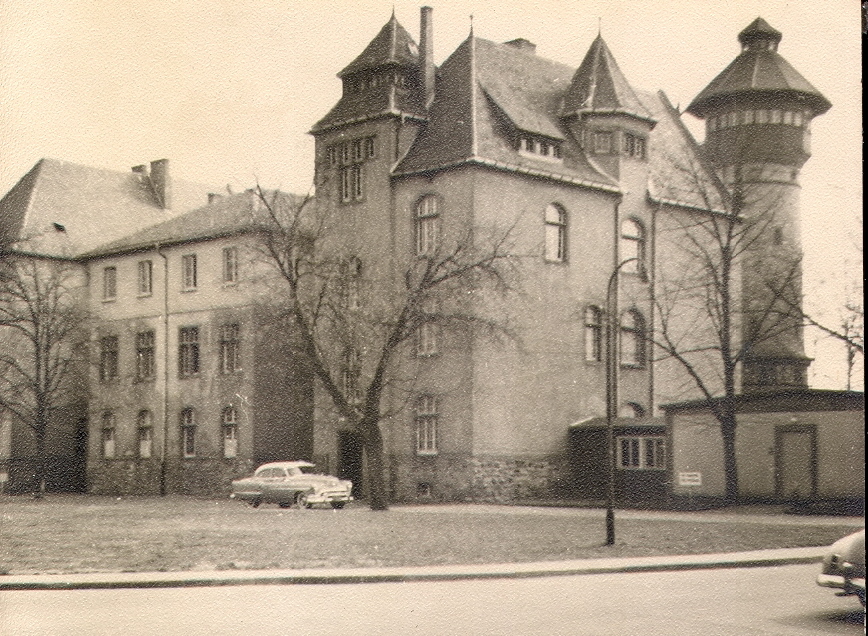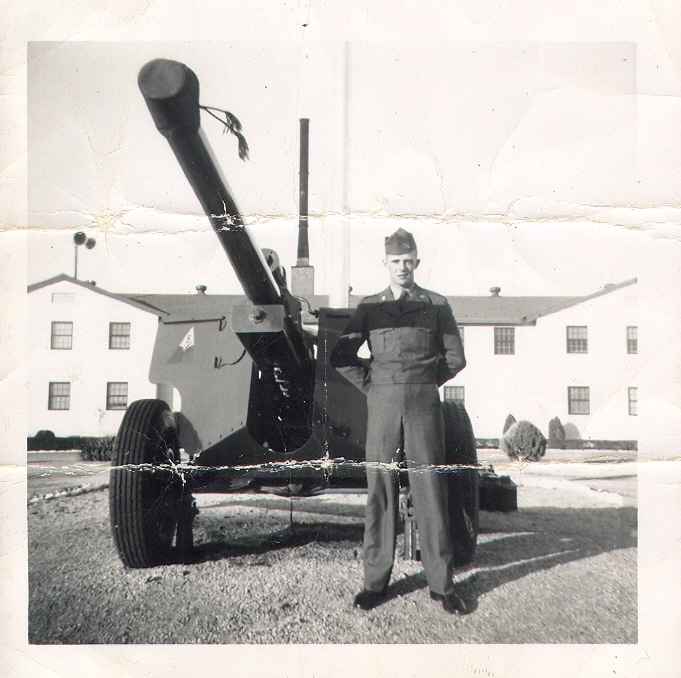TRANSCRIPTION
Describe your childhood.
Yeah, it was rough on the farm with no electricity, plumbing, or running water. It was a rough
life. We survived though with means that they had in the days, curing meats and so forth. Sausage. And
done a lot of hunting for fresh food in the winter. Fresh game. And until I was about sixteen, seventeen,
life became a little easier. Then I got a job in San Antonio and from then on it was a little easier
living.
 Describe what you remember of your schooling.
Describe what you remember of your schooling.
Well, it was the same situation. A lot of the time we had to walk to school or walk home from school in rain
and cold. It was about five miles. We had fun at it. We would get soakin' wet and just laugh it off, you know.
Throw rocks at the trees or something or rabbits. And get home and put on the work clothes and go pick cotton or
pull corn or something like that. We survived.
How did your parents earn a living?
By farming, share cropping with horses, mules. And we had to, about half, about fifty percent, we had to give
to the land owner. We got to keep the rest. More or less it could have been a third, but I'm just saying half, it
was somewheres in that area. And we would take our corn and have it ground up for corn meal. And raised
sugar cane and made our own molasses and took it down to a press. It took about thirty galoons at a time. It just
tasted like hunny. Very good. Had our own milk cows and had our own milk, cheese and butter.
What was your first job and how old were you when you got it?
Well actually my first job was on a farm. I worked for a neighbor on a tractor. Fifty cents an hour, eight hours
a day. And that was good money back there. Cause things didn't cost very much. Enjoyed it and watched the field
grow afterwards. And then again we used some parts of it was operated by horses. Like I'd have a role as roll rows
of corn after it was planted. I'd kinda pack it down and protect the moisture. One time a horse got scared of a rattle
snake and side stepped and threw me off. The horse and the roller ran home and buster the roller up and it was just in
pieces when he got to the house and I had a couple of broken ribs. Outside of that everything was fine. I had a wild ride
there for a while. The joys of country.
After that job what did you do?
Well then my first real job was at Randolph Air Force Base. I became a machinist helper. I enjoyed the work very
much, and worked there about a year and a half and we got in the RIF which was a reduction in force and about two months
later I got drafted into the U.S. Army. Served my two years in Germany and came back and got on a Kelly Air Force Base
and that is where I continued my career. A machinist and a supervisor. As far as education, I didn't go too far. We had too
much work on the farm. We had to so called help our parents do the crops and I got so far behind, I started school late,
so I just figured, well I might as well drop out and not try to catch up. It's pretty hard to catch up you know, after
you've lost so much schooling. I survived!
Why were you in Germany, what was going on in that time period, that had American soldiers staying there?
I was in Germany from 1953 to 1955 and it was at peace time, of course you always had to be armed in case of a break out
somewhere. This was right after the Korean war and right before the Vietnam war. So this was at peace time in Germany and you gotta
stay prepared, always be prepared and always have all the equipment prepared in the event of conflict. So we were busy
with our long range artillery peaces which was 155 millimeter howitzers, and we would practice and make sure they were in good
condition. We would go from place to place as if we were actually in war to set up, get prepared and ready to fire, which we never
did, but we was just showing our force. If the real thing would happen we would be there to protect our assets. It was rather
interesting.

What did you do while you were in Germany, other than preparing to protect?
During our off time, our service club would take us on tours to the interesting places in Germany, the castles, Heidelberg
castle was on the top of the list, and Nuremberg and places where Hitler was born and this and that, and the Rhine River, and eat
some of the good German food and good German beer. They had it cold for us, it wasn't warm like they like it. I wouldn't even try
it hot. Their life is, the animals live on the first floor and the people live right above them in the same building, so it's kinda
stinky in some of the towns we went through. But it was quite interesting, and I would love to go back there. I would recommend
to go to Germany of all the places I've been to.

What did you like and dislike about your job?
Well, I didn't really dislike it a lot. I really enjoyed my work. I enjoyed making things out of metal, and I
really enjoyed it. I can't really say I've had bad feelings towards my job. Sometimes it was a little hard, couple days
a week maybe, but things usually went pretty smooth. Little, a little hard after I became a worker, a supervisor, I worked
later, but I managed to keep everything going. The way it should.
 When did you become a supervisor?
When did you become a supervisor?
I became a supervisor about 1974, and I continued on for about fifteen years as a supervisor until my retirement.
How long of a day would you work and what was your pay like?
Well, my pay was about eleven, twelve dollars an hour, and I guess the longest days were during the Cuban Crisis
and we worked two shifts around the clock, which was twelve hours and sometimes a fourteen hour day. That was a lot of hours
and very little sleep but we pulled through.
What was the Cuban Missile Crisis?
What was the highlight of it, Russian and the United States and Cuba were all pointed fingers towards us, the West was the dirty
people so Russia was our enemy and so was Cuba; and they used Cuba as a stepping stone for the United States. By that meaning you could
set up missiles and give Cuba millions of dollars and be on their side. So in the event of some conflict they would be right at our back
door and pull the trigger and the missile would be here in a few seconds. Khrushchev was right in the middle of it and he had a speech one
slamming the United States, pulled off his shoe and slammed it on the table and said, "we're going to bury you Americans!" and that was
plastered all over the T.V. So any way, we had to get as much prepared as possible, and me being employed at Kelly and working on the
B-52's; well, that would be the prime source of deploying the bombs, so I had to keep them going and working 12, 14, 16 hours a day and
around the clock plus to keep everything in ship shape. That was the main highlights of it.
Was your job at Kelly a popular or socially acceptable job?
I done very good at Randolph. I got a letter of accommodation for doing a good job and that just gave me the initiative
to keep on going for the love of work. I just kept on as a machinist. I enjoyed it very much.
Besides working, what is really memorable in your past that you can recall?
Well, I enjoyed working on the cars and trucks, and most of all I really enjoyed gardening, and fishing. But I was
never afraid of work, I really enjoyed my work. It slowed down a little when I started having back problems, but I still hold
my ground and do what I need to do.
How were you parents, what were they like?
They were very good and supportive. I was the last of ten children, so they were up in age pretty good when I was growing
up. So I kinda had to be their driver, and this sort of thing, and help them along with hard work.
You lived with your parents until you were sixteen in St. Hedwig then moved to San Antonio?
Right.
Who did you live with?
I lived with my sister in Harlandale. I guess for about a year and a half, and me and wife got married and bought out
our own home on Koehler Courts on the south side of San Antonio. We were there about four or five years and then living at
the present address on Jupe. Been here right at forty years.

Your parents used to own this land in here right?
Right. They lived about two lots down. They moved here in 1953. I was going in the service when they moved over here. We
all helped build my parents home. My family owned this whole block where Jupe is. We got this plot of land and lived near my
parents and family. We built this home and we've been here a little over forty-five years now.
Is there anything else you would like to add to this interview?
Well no, I just have enjoyed my life, my grandchildren, my great-grandchildren and just watch them grow up and
have fun with them. Beat them in horseshoes every once in a while. It's been a good life. I've really enjoyed it!

ANALYSIS
While doing this interview I learned a lot about my grandfather. He did have a very difficult life as a young child. I learned
that my great-grandparents moved to St.Hedwig, Texas from Poland. My grandfather had a large family, and being the youngest of
ten children, he really had to work hard to help his parents around the farm. My grandfather said many times that he did enjoy
working. I really respect that statement because many people today have it very easy and hate to work. I believe the most important
point made in our interview is that my grandfather was never afraid to work and worked his whole life. He was working very young on the farm, and even had to drop out in the third grade because his parents were behind on work. I never knew people dropped out so early in life, and was shocked to hear this. I didn't know anything in this interview before I interviewed my grandfather this weekend.
This was really the first time my grandfather ever talked about his past. My grandfather didn't really like talking about his past, but once we were finished with the interview, he really went into the details of his past in the army. He opened up and enjoyed telling
about his life. The stories that I heard in the interview really taught me that life was hard in the early 1900's, but my grandfather was really never fazed by the hard work. I looked attempted to verify the stories my grandfather told me by looking into web sites that were dedicated to Kelly Air Force base, Cold war, Geyers, etc. It was to my benefit to learn about my grandfather's past, so that later on I can share the stories with my family, and it also made me more knowledgeable. Doing the interview while being recorded probably stopped me from getting as much information as I could because my grandfather did not like being recorded. Overall, I do believe that doing this
interview process really did help me to learn and understand my grandfather. I now understand why my grandfather is still such a hard worker, and he will probably always be that way until he can't anymore.
ANNOTATED BIBLIOGRAPHY
Mylius, Kris and Stiefer, Michelle.The History of St.Hedwig, Texas.
The history of St.Hedwig down to the core. Gives a description of the town since when it was first settled by Polish immigrants in 1954. Describes all of the original details of old St. Hedwig.
It lists the first fourteen immigrant families that settled the land. http://pacweb.alamo.edu/InteractiveHistory/projects/rhines/StudentProjects/1998/StHedwig/ST.html (2005).
Cold War: Cuban Missile Crisis. This website explains the cold war and the Cuban missile crisis. Cuba at the time, was
building missiles and the United States discovered this and set up a naval quarantine on Cuba to prevent further Soviet shipments of offensive military weapons from arriving there.
Library of Congress. http://www.loc.gov/exhibits/archives/colc.html. (Aril 9, 1996).
Kelly Air Force Base Global Security.
Kelly Air Force Base opened as a new flying field in 1916. It is no longer open but this web site describes the history form when it opened, to now, which is was realigned under Lackland AFB.
http://www.globalsecurity.org/military/facility/kelly.htm (Aril 26, 2005).
Liebert, Aleksander.
Nuremberg Castle. Picture of Nuremberg Castle in Germany. http://images.google.com/imgres?imgurl=http://i1.trekearth.com/photos/12183/143_4346_filtered.jpg&imgrefurl=http://www.trekearth.com/gallery/Europe/Germany/photo223966.htm&h
=580&w=800&sz=198&hl=en&start=1&tbnid=lSbh4Ussa_BXGM:&tbnh=102&tbnw=142&prev=/images%3Fq%3DNuernberg%2BCastle%26svnum%3D10%26hl%3Den%26lr%3D%26sa%3DX.
(July 2005).
Heidelberg Castle. Pictures of Heidelberg Castle in Germany. KRK Science & Technology Associates, Inc. http://images.google.com/imgres?imgurl=http://www.krksandt.com/gallery/germany/castle/p9060012.jpg&imgrefurl=http://www.krksandt.com/gallery/germany/castle/castle.htm&h=573&w
=800&sz=45&hl=en&start=2&tbnid=Hl9hZW8Pn8qM_M:&tbnh=101&tbnw=142&prev=/images%3Fq%3DHeidelburg%2BCastle%26svnum%3D10%26hl%3Den%26lr%3D. (03/20/2004).
Return to Oral History Projects

